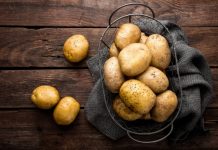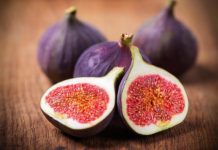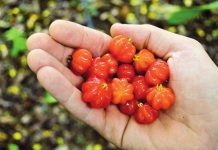Benefits of beets include boosting endurance and stamina, bone health, prevents respiratory problems, blood detoxification, prevents cancer, increases brain activity, acts as natural cleasning agent and protects liver.
As a new mother, you must have heard people say that it is recommended to start introducing your infant to solid food from the age of six months and onwards. Now, it might seem a daunting task to decide which foods are suitable for your baby and in which form. Don’t worry, we are here to help here with regards to this matter. We would advise you to serve basic foods in mashed form, because your baby still can’t chew the solids. Out of all these healthy foods, the topic of discussion of today’s article is beetroot, your humble, naturally red vegetable with an earthly flavour.
Beetroot is a root vegetable which is known very well for its numerous health benefits. Some of the benefits of beets in your baby’s diet includes cure for anemia, improved digestion, hepatoprotective or liver protection, a cleansing agent for the body and increase in brain activity and development.
Read More: Beets in Your Child’s Diet: 6 Surprising Health Benefits
What are Beets?
Beetroot is also known by several other names like table beet, garden beet, red beet, etc. Beetroot was known from Greek and Roman times and it was believed to be useful as a remedy for fevers and blood purification. Generally, beetroot is boiled, grilled, roasted or cooked as any other vegetable and it is also added to some salads.
It is believed that beetroot might have originated in the Middle East in Tigris. From there on it spread to the Mediterranean region, Turkey, Iran, Europe, Russia and in parts of Southeast Asia as well. After the discovery of the Americas, beetroot was also introduced to the Americas as well, especially in South America.
Read More: beet juice for baby
Are Beets good for my baby ?
Almost all vegetables can be introduced into your child’s diet after your baby is at least 6 months old. By introducing vegetables, you can make sure that your child will receive all the nutrients that are essential for infant development. You can introduce beetroot in small quantities (not more than 1-2 teaspoons) into your homemade baby food when your baby is at least 8-10 months.
11 Amazing Health Benefits of Beets for Babies
Feeding vegetables from an early age is perhaps one of the best steps that a mother can take to ensure good health of her baby. Beetroot with abundance of nutrients and numerous health benefits is a very good choice.
Rich in vitamins and minerals
The importance of minerals and vitamins in infant diet cannot be overlooked. Judicious supply of vitamins and minerals marks the beginning of healthy growth of your child. Beetroot being rich in minerals and vitamins such as iron, calcium, magnesium, potassium, vitamin A, vitamin B complex, vitamin C, vitamin K and vitamin E etc is recommended for your child.
A diet deficient of vitamins and minerals can be a cause for many diseases such as beri beri, night blindness, rickets, osteomalacia, angular stomatitis, glossitis, diarrhoea, etc. Feeding your child with vegetables such as beetroot can drastically decrease the risk of developing the above mentioned diseases.
Read More: Health Benefits of Beet in Baby Food
Decreases the risk of anemia
Risk of anemia is not only present in women but also in infants and children. Anemia develops due to lack of iron in the body. This deficiency is caused by iron and beetroot is a very good source of iron, especially for children.
High iron content in the body helps in producing red blood cells, supplies oxygen to the various parts of the body and also has a major role in brain development in the early months. (HK Bakhru, Foods That Heal, pp 92).
Improves digestion
Beets are also known for their digestion promoting activities. Promoting digestion of infants is necessary. As their digestive systems are still weak, feeding them with easily digestible foods and those foods which promote digestion. In this way, you can improve the digestive system of your child and make him or her healthy all the way. (HK Bakhru, Foods That Heal, pp 93).
Protects liver
Liver disorders can arise in infants and children. Some of the most common diseases include jaundice and hepatitis. Jaundice can affect the appetite significantly. Give not more than 2-3 teaspoons of beetroot juice can be given to the child under such conditions. (Váli et al, 2007).
Natural cleansing agent
Try giving beetroot juice combined with carrots and cucumber. This juice cleanses the body from the inside, especially for kidneys and gall bladder. Give only a few tablespoons of the juice to your child first and then increase the amount over the coming months. Add only a small piece of beetroot to the juice. (HK Bakhru, Foods That Heal, pp 93).
Read More: Beet and Carrot Soup Homemade Baby Food Recipe
Beetroot for increased brain activity
Beetroot promotes blood circulation in the brain. Increased brain activity in the early years of development will lead to optimum brain functioning in the later years. (HK Bakhru, Foods That Heal, pp 93).
Prevents cancer
Beetroot vegetables are good at preventing skin, lung, and colon cancer as they contain the pigment betacyanins, which prevents cancerous cell growth. Nitrate compunds used in meats as preservatives can stimulate the production of nitrosamine compounds in the body, which usually results in cancer. Studies have shown that the beet juice inhibits the cell mutations caused by these compounds. The natural beta-carotene in beetroot helps in preventing lung cancer. Many babies are prone to developing cancerous tumors in their bodies, so beets are good for prevention.
Boosts blood detoxification
Beetroot is an excellent blood cleanser as the betalain in them helps promote a liver and an overall blood cleanse. The liver is the vital organ that detoxifies the blood that comes through the digestive tract before it flows to the rest of the body.
Prevents respiratory problems
Beetroot is a source of vitamin c that helps prevent asthma symptoms. Besides defending against the effects of free radicals in the body, the vitamin also stimulates the activity of white blood cells, which are the body’s main line of defense against foreign bodies, as well as viral, bacterial, fungal, and protozoan toxins that can result in a multitude of infections and illnesses.
Promotes bone health
Minerals such as boron, copper, and magnesium in beets help bones develop normally and boost bone metabolism. The root vegetables also contain potassium, which conserves calcium within the body and reduces the loss of calcium through the urine.
Boosts endurance and stamina
Research shows that consumption of nitrate-rich, whole beets improve running performance in healthy adults. In another study, researchers found that people who drank beet juice increased their oxygen uptake by up to 16%. This is actually more than a normal person can improve by, even when training extensively. Beet juice has shown to improve athletic performance in runners, swimmers, and cyclists, making it an interesting sports drink that most people would never consider.
Beets Nutrition in Baby Food
According to the National Nutrient Database for Standard Reference from the US Department of Agriculture lists the nutrition value of beets to be
| Nutritional value | Value per 100 g | Nutritional value | Value per 100 g |
| Water | 87.58 g | Energy | 43 kcal |
| Protein | 1.61 g | Total Lipid (fat) | 0.17 g |
| Carbohydrate | 9.56 g | Fiber | 2.8 g |
| Sugars | 6.76 g | Calcium | 16 mg |
| Iron | 0.80 mg | Magnesium | 23 mg |
| Phosphorous | 40 mg | Potassium | 325 mg |
| Sodium | 78 mg | Zinc | 0.35 mg |
| Vitamin C | 4.9 mg | Thiamin | 0.031 mg |
| Riboflavin | 0.040 mg | Niacin | 0.334 mg |
| Vitamin B-6 | 0.067 mg | Folate | 109 ug |
| Vitamin A | 33 IU | Vitamin E | 0.04 mg |
| Vitamin K | 0.2 ug |
Precautions to be taken while feeding beets to babies
Though beetroots play an important role in imparting overall health and development to your child, one must remember that it is infants that are being fed and hence proper care must be taken to avoid any effects.
When is the best time to introduce beets to my baby?
Remember that vegetables can be introduced into your child’s diet once he or she is at least 8-10 months old. By the time they reach 8-10 months of age, their digestive system will be strong enough to digest semi-solid foods, boiled and steamed vegetables.
What is the best way to give beets to my baby?
If you are concerned about high amount of nitrates, you either boil or steam the beetroot. Cooking reduces nitrate content significantly. Even when you want to give beetroot juice, steam it for few minutes before making the juice. In this way, you can avoid nitrates and give the best to your child.
How much quantity of beets can be given to a baby?
Beetroots have high amount of nitrates which can be very difficult for infants to digest and hence while giving beetroots to your child, it is important that you limit it to 1-2 teaspoons. Only after the child is 1 year old, you can increase the amount. Even that should not be more than few teaspoons. But until then, limit the amounts as specified.
Can I give beets before other vegetables?
Introducing beets first may not be a good idea because beets contain an earthy flavor. Your child might not like this flavor. Hence, start with vegetables like carrots, sweet potatoes, potatoes, etc and then introduce beets.
Is it important to do the 4-day test?
Yes, a 4 day test is very important, especially when introducing new foods to your child. When introducing new foods, make sure that you introduce only one vegetable, fruit and any food item at one time. This gives you a margin to deduce food items, if they cause any allergies to your child. This is an important precaution that you need to take, if there are any food allergies in your family. The risk of developing food allergies can be high when you have a history of allergies in your family.
Simple Homemade Beet and Carrot Recipe
Here’s a simple homemade Beet and Carrot soup recipe that you can try.
References
HK Bakhru, Foods That Heal, pp 92-93, Orient Paperbacks, New Delhi, India.
Váli, Stefanovits-Bányai, Szentmihályi, Fébel, Sárdi, Lugasi, Kocsis, Blázovics, 2007, Liver-protecting effects of table beet (Beta vulgaris var. rubra) during ischemia-reperfusion Nutrition – February, Vol. 23, Iss 2, pp 172-178. http://www.nutritionjrnl.com/article/S0899-9007%2806%2900394-7/abstract













